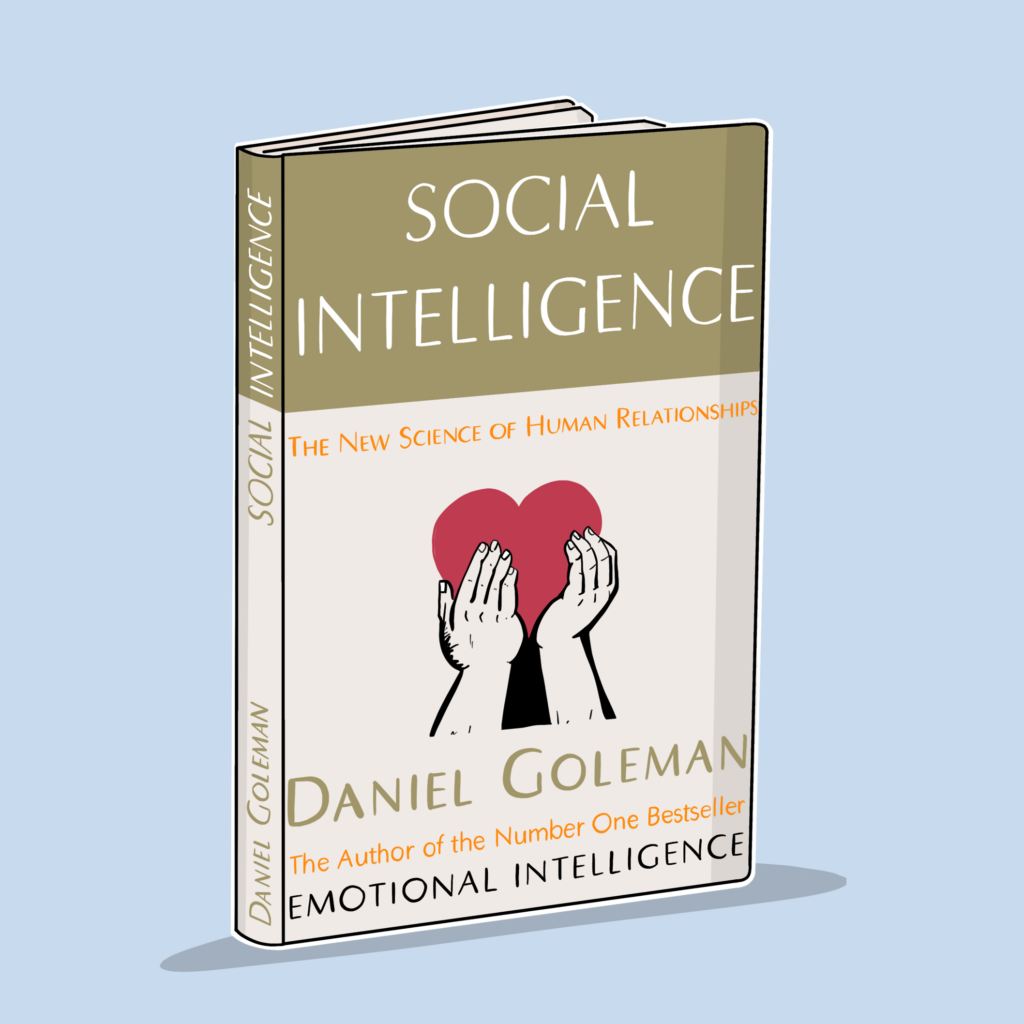

Daniel Goleman became well-known through his book Emotional Intelligence (EI) in the mid 1990’s. There he explored the impact and importance of emotions and – later on – their influence on leadership. In his subsequent book “Social Intelligence”, he took us on a tour of major developments in neuroscience since EI that show us how our brain’s design makes it sociable and how we are drawn into a brain-to-brain link-up whenever we engage with another person. This link-up allows us to affect the brain, and thus the body, of anyone we interact with and they us.
The book explains how social intelligence develops and its impact. Many of the examples will be familiar to readers of Gladwell’s “Blink”, since many of the experiments described there are viewed from another perspective. Much of the research reported stems from the medical, educational and correctional fields, giving food for thought about how (in-)effectively society is organised. For example, research shows the positive effect on a partient’s well-being that a doctor has by entering into an “I-You” rather than an “I-It” relationship, i.e. treating them as a person. A couple of days after reading about this, a friend of mine was told in an off-the-cuff remark that her husband’s tumour was malignant rather then benign. Very “I-It”.The book doesn’t spend too much time on leadership (roughly pp 275-281). What it has to say gives food for thought. Three points to focus on:
- Many leadership theories are based on the idea that people pay more attention to that the most powerful person does an says. Goleman reports research and anecdotes that show how a leader’s emotional state is infectious. One study reported that the team’s effectiveness and performance correlates to the team leader’s mood. Even worse, a boss in a bad mood leads to panicked efforts to please them, resulting often in poor decisions and strategy selection.
- Employees more easily recall, and in more detail, negative interactions with a boss than positive ones. Thus it’s easier to spread demotivation. If only for business reasons, it makes sense for a leader to react with empathy rather than indifference.
- People feel secure around bosses who are trustworthy, empathic and connected, who make them feel calm, appreciated and inspired. Thus it is necessary the leaders learn how to shield their staff and buffer the pressure that comes from above in the organisation. This needs to be balanced against a need to help people grow and take on more challenges, which is easier to do in a secure environment.
Goleman offers a challenge to leaders everywhere – good leaders will do well to take it up.


